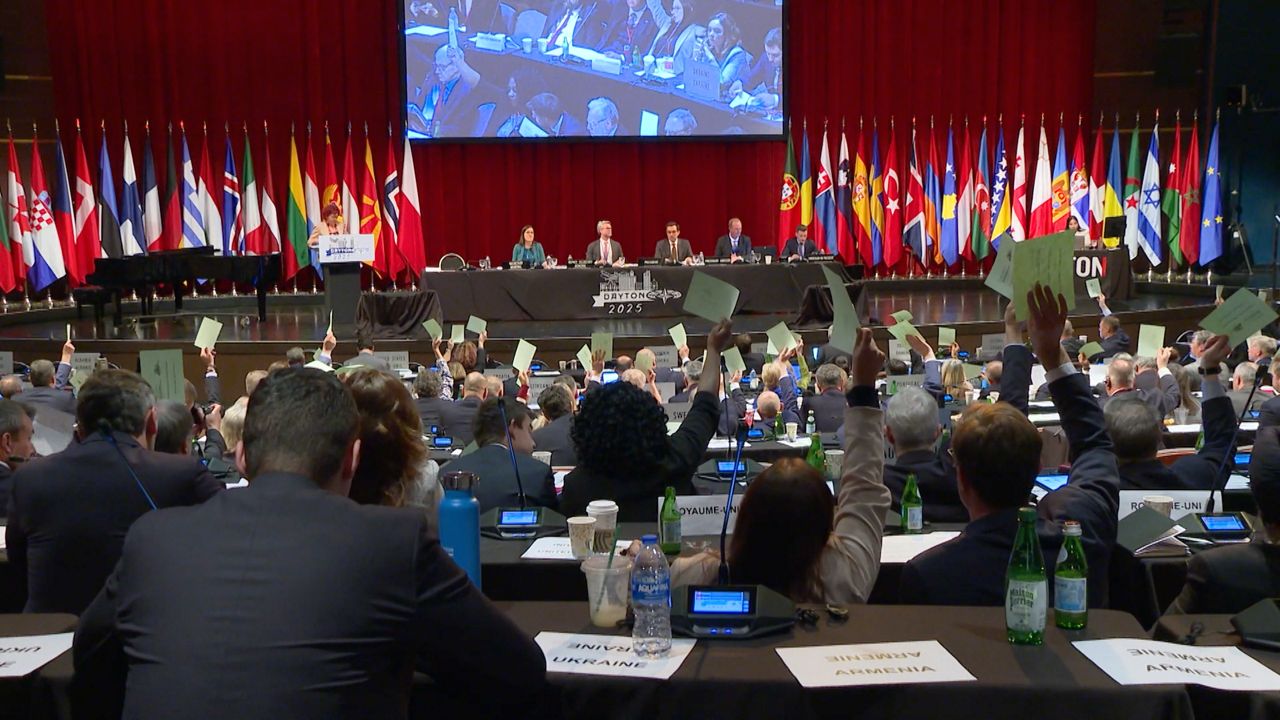WASHINGTON, D.C. — The city of Dayton, Ohio, drew international attention hosting the NATO Parliamentary Assembly late last month. The gathering came as the U.S. and other NATO members are reevaluating the United States role in NATO as a result of President Donald Trump’s repeated criticism of the alliance.
What You Need To Know
Dayton, Ohio hosted NATO PA’s Spring Session from May 23 to 26
NATO Secretary General Mark Rutte signaled that the session set the stage for NATO countries to agree to higher defense spending
President Donald Trump has requested countries spend 5% of their GDP on defense
Nearly 1,000 lawmakers and staff from NATO’s 32 member states attended the four-day NATO PA’s Spring Summit, the first to be held in the U.S. since 2003.
Their mission, according to a statement, was to “set the Alliance’s future path” amid Russia’s war in Ukraine and pressure from Trump for member countries to spend more on defense.
“They certainly see the need for increased defense spending, both for their own defense capabilities, their contributions to NATO and their overall defense posture as they look to Russian aggression,” said Rep. Mike Turner, R-Ohio.
Turner, who led the Assembly from 2014 to 2016 and currently leads its U.S. delegation, said U.S. pressure on NATO has led to more investment in defense.
“The pressure upon our European allies to spend more is important. And it’s, they’re responding. They need to spend more. They need to pull their own weight,” Turner said. “That stronger alliance certainly will deter Russia.”
NATO Secretary General Mark Rutte signaled that the session set the stage for NATO countries to agree to higher defense spending when they meet again on June 24 in The Hague, Netherlands.
“Agreeing on what we need was a vital first step. To deliver on these needs, allies will need to invest much, much more in defense. I will propose an overall investment plan that will total 5% of GDP in defense investment,” Rutte said at a press conference.
That 5% would be divided into 3.5% for core defense spending and 1.5% in security-related investments like infrastructure and industry.
The Assembly meeting in Dayton was particularly significant as it fell on the 30th anniversary of the 1995 Dayton Peace Accords that ended the Bosnian War.
